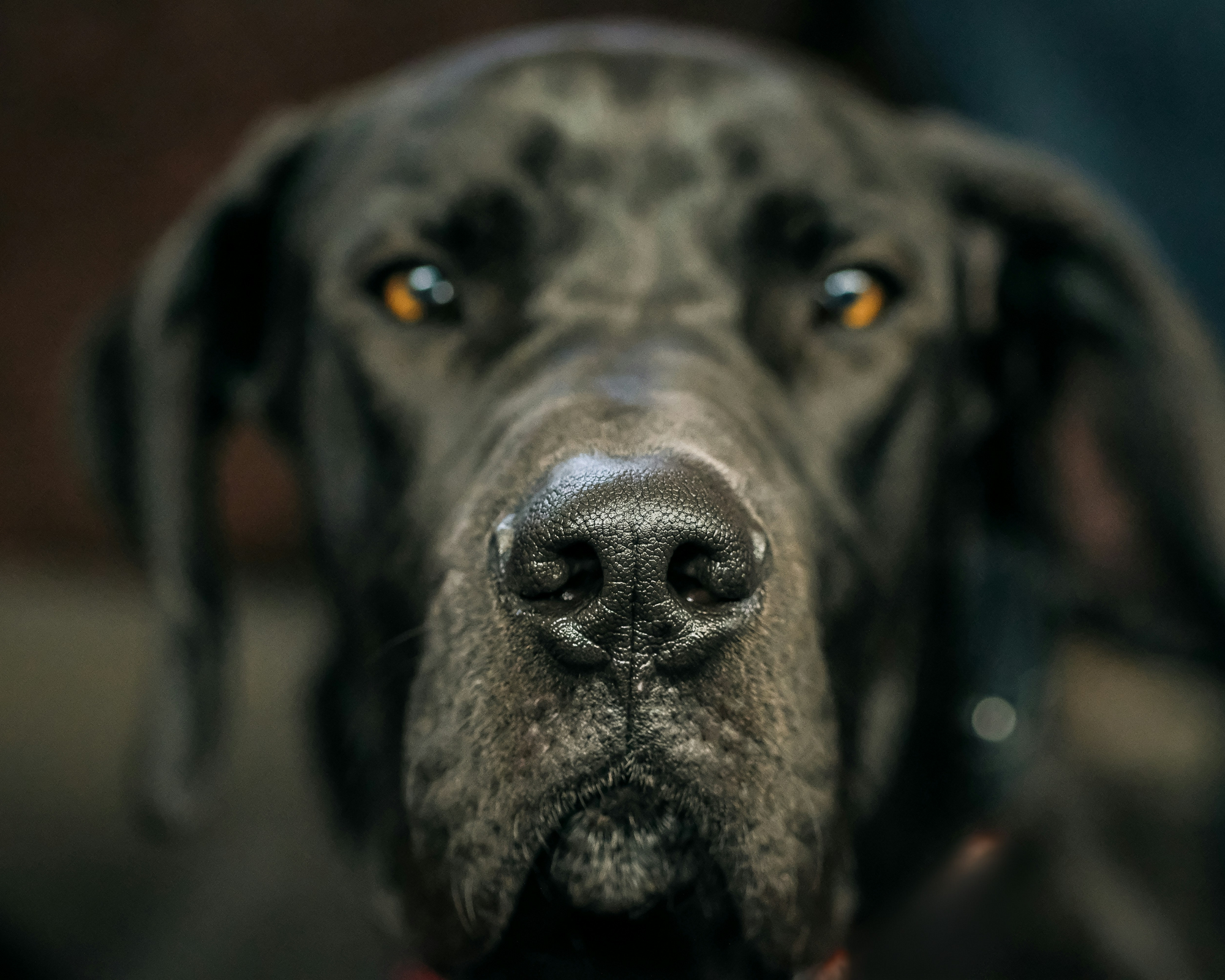

The Other Side of Sweet: Understanding the Tougher Traits of Great Danes
Great Danes are known as gentle giants—and for good reason. They’re affectionate, loyal, and deeply devoted to their people. But if you’ve lived with one, you know that “gentle” doesn’t always come naturally.
These dogs are powerful, sensitive, and, at times, downright intense. And while they can absolutely be incredible companions, it’s important to understand that some of their traits require thoughtful, consistent management.
Let’s take a look at some of the more challenging behaviors that can show up in Danes—and how to handle them.
1. Reactivity: Big Dog, Big Reactions
Great Danes can be reactive to new people, dogs, or situations—especially if they haven’t been well socialized or exposed to a variety of environments. When a 150-pound dog reacts with barking, lunging, or pulling on leash, it’s a whole different experience than with a smaller breed.
Triggers may include:
-
Other dogs on leash
-
Visitors at the door
-
Unfamiliar noises or environments
-
Fast or unpredictable movements
Reactivity doesn’t mean aggression. Often, it stems from fear, frustration, or lack of experience. But due to their size, Danes don’t get the luxury of being “a little reactive.” It’s up to us to help them build confidence and stay calm in new situations.
2. Intense Resource Guarding—Especially of Their People
Most people think of resource guarding as protecting food or toys. But with Danes, one of the most common things they guard is you.
Because they bond so strongly with their humans, some Danes become overly protective or possessive. They might:
-
Block other dogs from approaching you
-
Growl or stare when another pet gets close
-
Guard your lap, bed, or even your attention
-
Seem hyper-alert when guests or kids are around
This behavior often starts out subtle but can escalate if not addressed. It’s a form of resource guarding—treating you like something they own. Without clear boundaries and training, this can become a safety concern for both people and other pets.
3. Socialization Isn’t Optional—It’s Urgent
Socialization is important for all dogs—but for Great Danes, it’s essential.
These dogs grow quickly and powerfully. Without proper guidance, they can become awkward, pushy, or rough during play, especially with other dogs. Danes often don’t realize their size, and when their play style isn’t corrected by mature, well-socialized dogs, they can develop bad habits fast.
What proper socialization looks like:
-
Exposure to calm, well-behaved dogs of all sizes
-
Positive experiences with different environments, people, and surfaces
-
Learning to read dog body language through play and observation
-
Practicing impulse control and respecting space
A Dane who hasn’t been socialized is a recipe for frustration—for them, for you, and for the dogs they’re trying to interact with.
4. What You Can Do to Set Your Dane Up for Success
✅ Start early—but don’t panic if you’re late
Puppyhood is ideal for training and exposure, but older Danes can absolutely learn new skills. The key is consistency and patience.
✅ Work with a trainer—preferably one with large breed experience
Big dogs bring big energy and big pressure. A qualified trainer can help you understand your Dane’s body language, triggers, and motivation.
✅ Establish structure, rules, and calm routines
A predictable routine helps your Dane feel safe. Use tools like crate training, “place” commands, and structured walks to build reliability and reduce anxiety.
✅ Prioritize quality over quantity in socialization
It’s not about flooding your dog with new experiences—it’s about building positive ones. One great interaction with a calm dog is more valuable than five chaotic ones at the dog park.
✅ Be your dog’s advocate
Your Dane doesn’t need to “make friends” with every dog or every person. Give them space when they need it, and never force social situations they’re not ready for.
All Dog's Come with Challenges
Here’s the truth: Great Danes are incredible dogs. They’re loving, silly, loyal, and surprisingly gentle when well-raised. They’re also headstrong, emotional, and capable of behaviors that require serious responsibility.
It doesn't make them bad dogs.
It makes them dogs that need thoughtful, prepared humans.
If you’re willing to put in the work—to train them, advocate for them, and raise them into balanced companions—they’ll give you everything they’ve got.
And honestly? There’s nothing that can match the love of a Dane.
